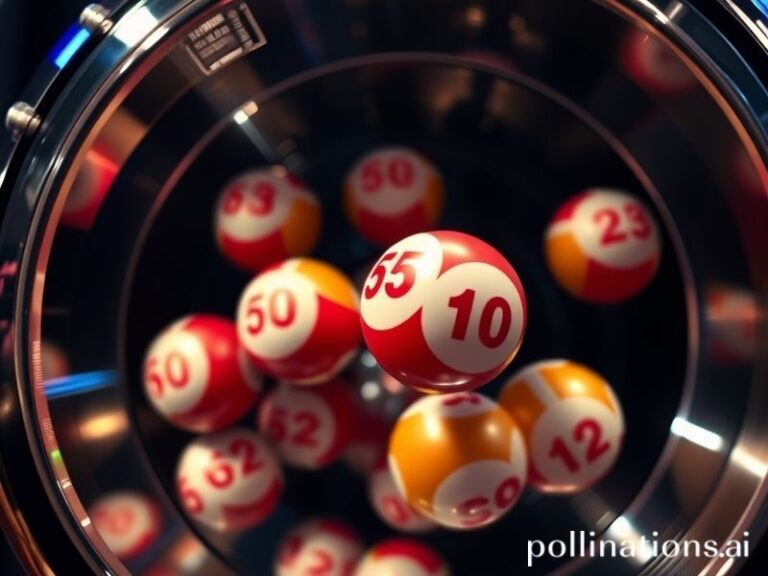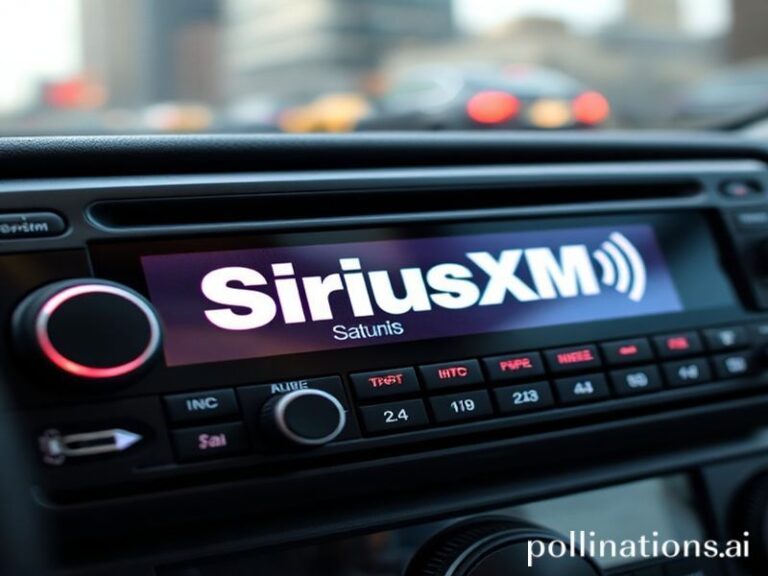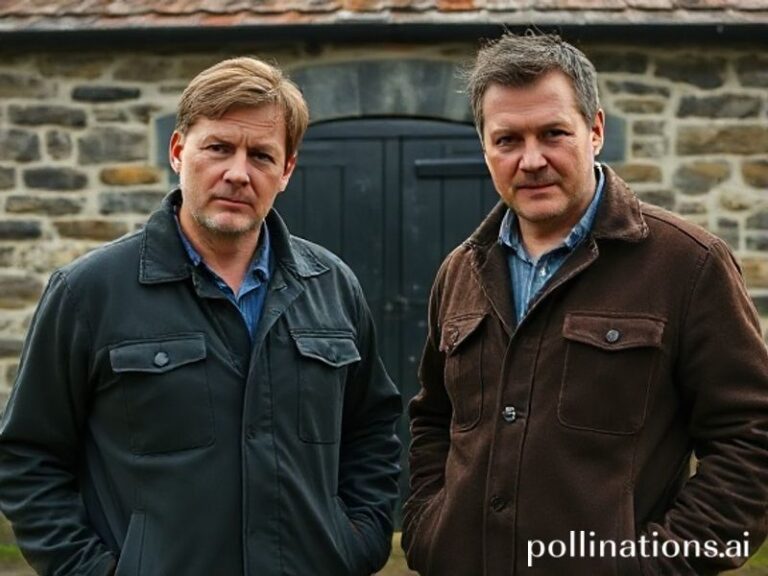Euro on the Brink: How the Big E Became the World’s Riskiest Mood Ring
Big E: The Letter That Decides Whether Your Pension Buys Noodles or Nothing
by Our Man in Geneva, nursing his third espresso and existential dread
If you’ve glanced at any financial screen this week, you’ve seen it lurking in the corner like a bouncer who’s already decided you’re not on the list: the Big E. Not a Bond villain’s mountain lair, but the euro—still trading, still pretending it’s 1999, and still the currency that keeps European finance ministers awake at night like toddlers afraid of the dark. From Lagos to Ljubljana, the euro’s gyrations are now everyone’s problem, because—as modern capitalism loves to remind us—when Frankfurt sneezes, the rest of the planet catches double pneumonia.
The euro’s latest adventure began last Tuesday when the European Central Bank, in its infinite wisdom and dwindling ammunition, decided to “pause” interest-rate hikes “for now.” Markets translated that dovish whisper into a swan dive; by Thursday the euro had shed two cents against the dollar, enough to wipe the smirk off every American tourist smugly ordering Aperol Spritzes in Rome. Meanwhile, in Nairobi, Kenyan importers watched the shilling strengthen just enough to postpone the usual panic call to their Chinese suppliers, proving once again that monetary policy is the world’s most expensive form of performance art.
But the euro’s real theater is geopolitical. The currency is now the primary bargaining chip in Europe’s attempt to keep the lights on without Russian gas. Every cent the euro drops is a cent that extra Qatari LNG costs, and Brussels has discovered—rather late in the game—that money is merely a polite word for energy you haven’t burned yet. Hence the parade of Eurocrats to Riyadh this month, promising “strategic partnerships” which, loosely translated, means “please take our colorful paper rectangles in exchange for molecules we can set on fire.” The Saudis, ever gracious hosts, smiled and reminded their guests that the petrodollar is not a suggestion.
Across the Atlantic, Washington watches with the thinly veiled delight of a divorcée at her ex’s wedding. A weaker euro makes European exports cheaper, sure, but it also tightens the screws on the EU’s already creaky fiscal rules. Italy’s debt—roughly the size of Jupiter—becomes harder to service when your currency looks like it’s been on a juice cleanse. American hedge funds, who have the emotional range of a spreadsheet, are already positioning for the “Euro break-up trade,” a polite euphemism for betting on continental divorce like vultures circling a zebra with marital problems.
Asia, never one to miss a good currency schadenfreude, is quietly rebalancing. Beijing’s digital yuan pilots are accelerating, partly because Xi Jinping likes shiny tech toys, but mostly because owning a currency not beholden to Mario Draghi’s ghost is strategically comforting. Tokyo, whose yen has been impersonating a limp handshake for years, at least has the consolation that misery loves company. Singapore, ever the adult in the room, simply buys more gold and waits for the adults to stop squabbling.
And then there’s the human element—the pensioner in Porto wondering why his monthly stipend now buys fewer sardines, the Ghanaian student whose tuition in Berlin just got pricier, the Turkish exporter who priced a shipment in euros and now needs a calculator, a lawyer, and a stiff drink. The euro, conceived as a monument to peace and prosperity, has become a planetary mood ring: green when Germany’s happy, red when Italy mutters about “Italexit,” and an ominous bruise-purple whenever energy markets hiccup.
Conclusion: The euro’s saga is ultimately a referendum on Europe’s ability to act like a single, solvent country instead of a quarrelsome family reunion that forgot the picnic budget. For the rest of us, the Big E is a reminder that in the 21st century, sovereignty is measured not by how many tanks you own, but by how convincingly your central banker can lie on television. Until Europe finds a way to back its currency with something sturdier than crossed fingers and French bravado, the rest of the world will keep its popcorn ready—and its assets denominated in anything but euros.







